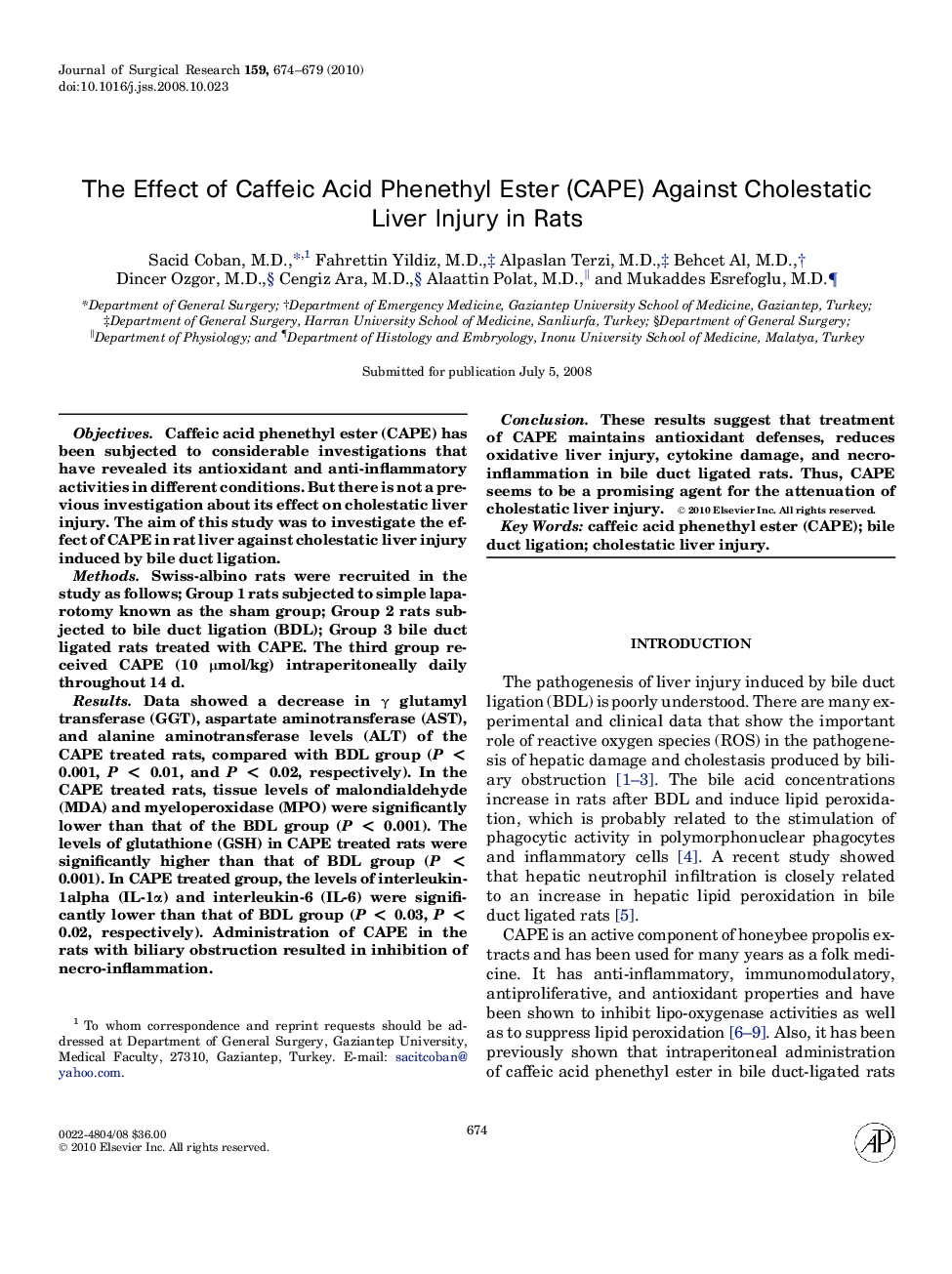| Article ID | Journal | Published Year | Pages | File Type |
|---|---|---|---|---|
| 4303185 | Journal of Surgical Research | 2010 | 6 Pages |
ObjectivesCaffeic acid phenethyl ester (CAPE) has been subjected to considerable investigations that have revealed its antioxidant and anti-inflammatory activities in different conditions. But there is not a previous investigation about its effect on cholestatic liver injury. The aim of this study was to investigate the effect of CAPE in rat liver against cholestatic liver injury induced by bile duct ligation.MethodsSwiss-albino rats were recruited in the study as follows; Group 1 rats subjected to simple laparotomy known as the sham group; Group 2 rats subjected to bile duct ligation (BDL); Group 3 bile duct ligated rats treated with CAPE. The third group received CAPE (10 μmol/kg) intraperitoneally daily throughout 14 d.ResultsData showed a decrease in γ glutamyl transferase (GGT), aspartate aminotransferase (AST), and alanine aminotransferase levels (ALT) of the CAPE treated rats, compared with BDL group (P < 0.001, P < 0.01, and P < 0.02, respectively). In the CAPE treated rats, tissue levels of malondialdehyde (MDA) and myeloperoxidase (MPO) were significantly lower than that of the BDL group (P < 0.001). The levels of glutathione (GSH) in CAPE treated rats were significantly higher than that of BDL group (P < 0.001). In CAPE treated group, the levels of interleukin-1alpha (IL-1α) and interleukin-6 (IL-6) were significantly lower than that of BDL group (P < 0.03, P < 0.02, respectively). Administration of CAPE in the rats with biliary obstruction resulted in inhibition of necro-inflammation.ConclusionThese results suggest that treatment of CAPE maintains antioxidant defenses, reduces oxidative liver injury, cytokine damage, and necro-inflammation in bile duct ligated rats. Thus, CAPE seems to be a promising agent for the attenuation of cholestatic liver injury.
